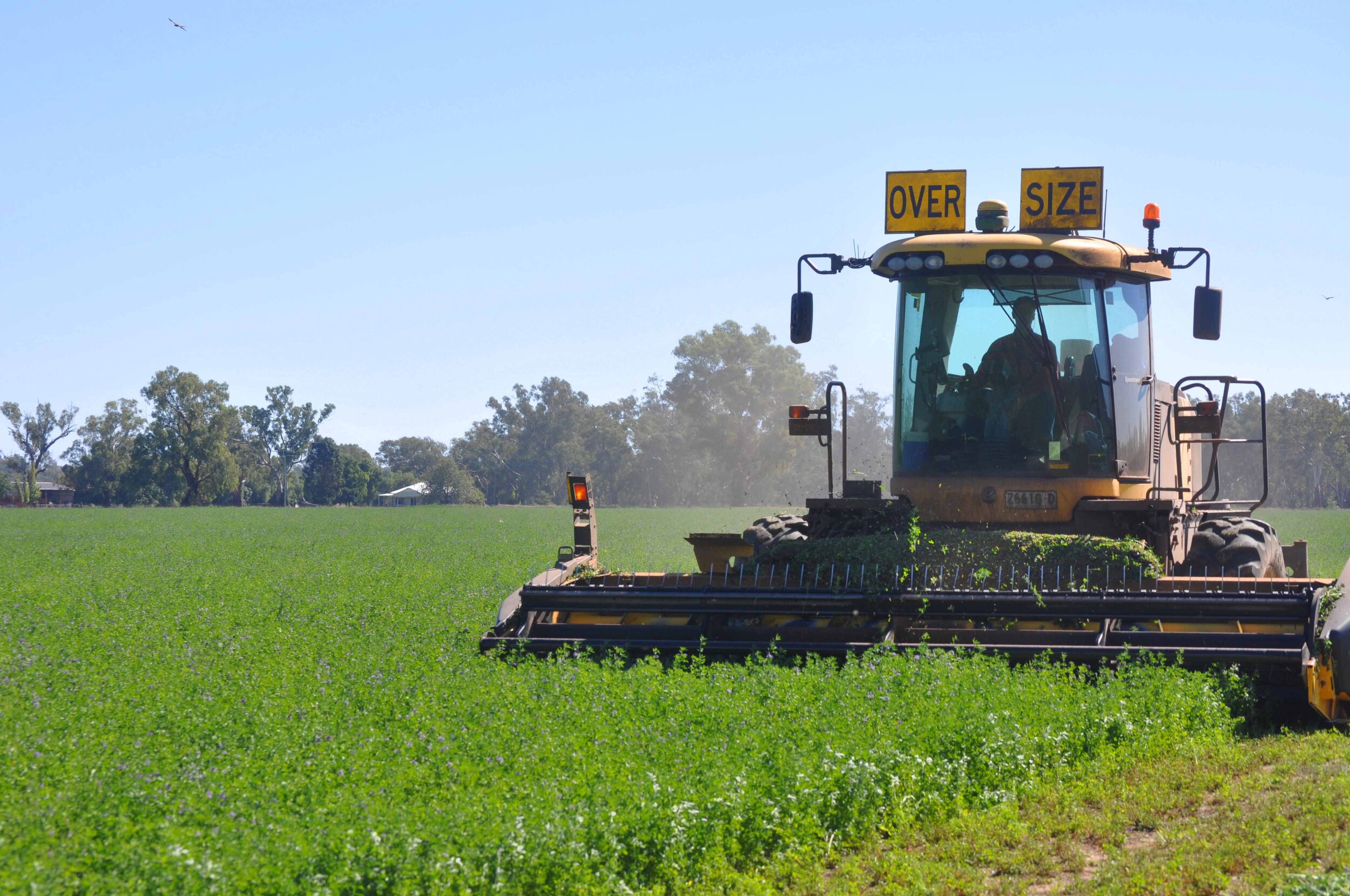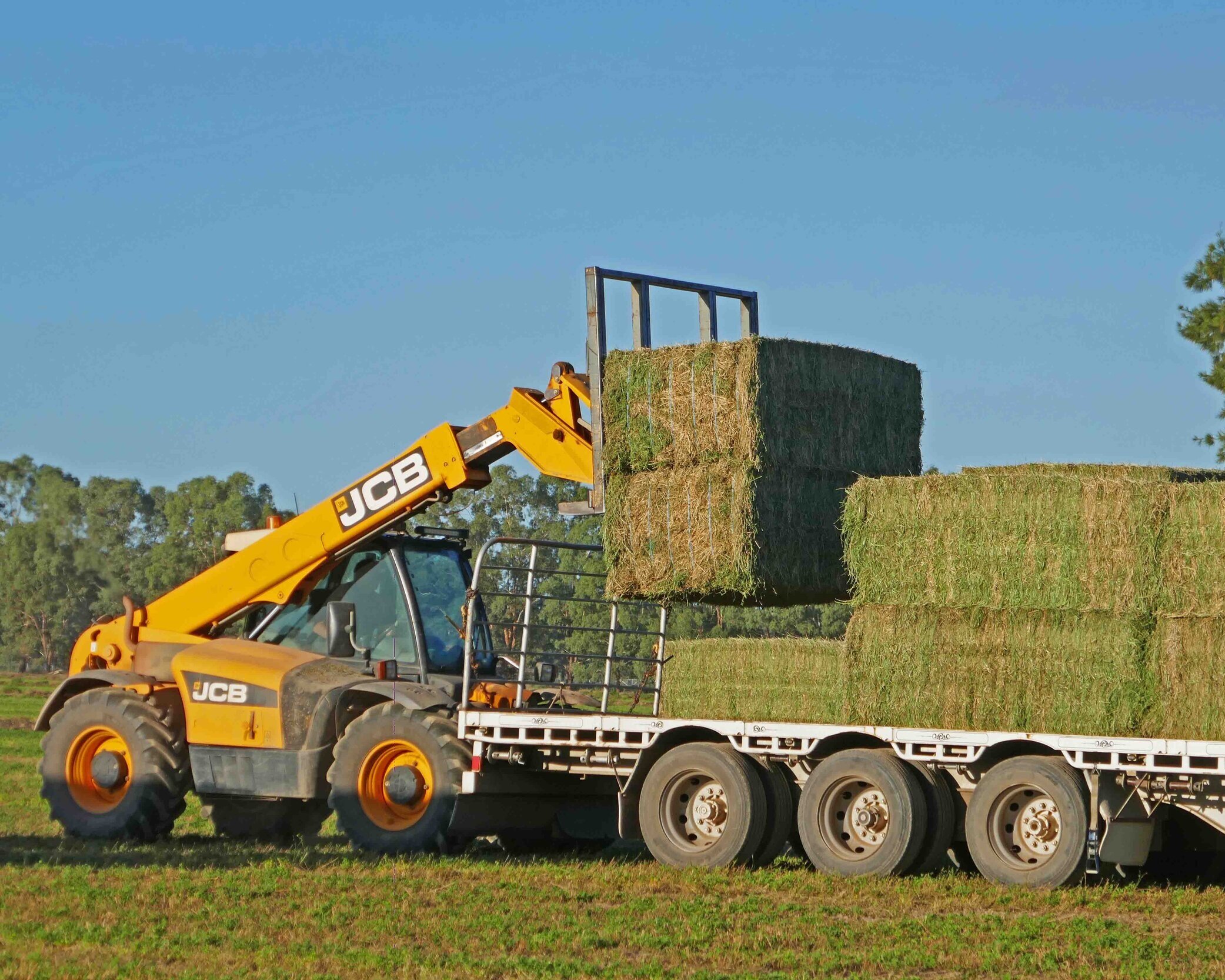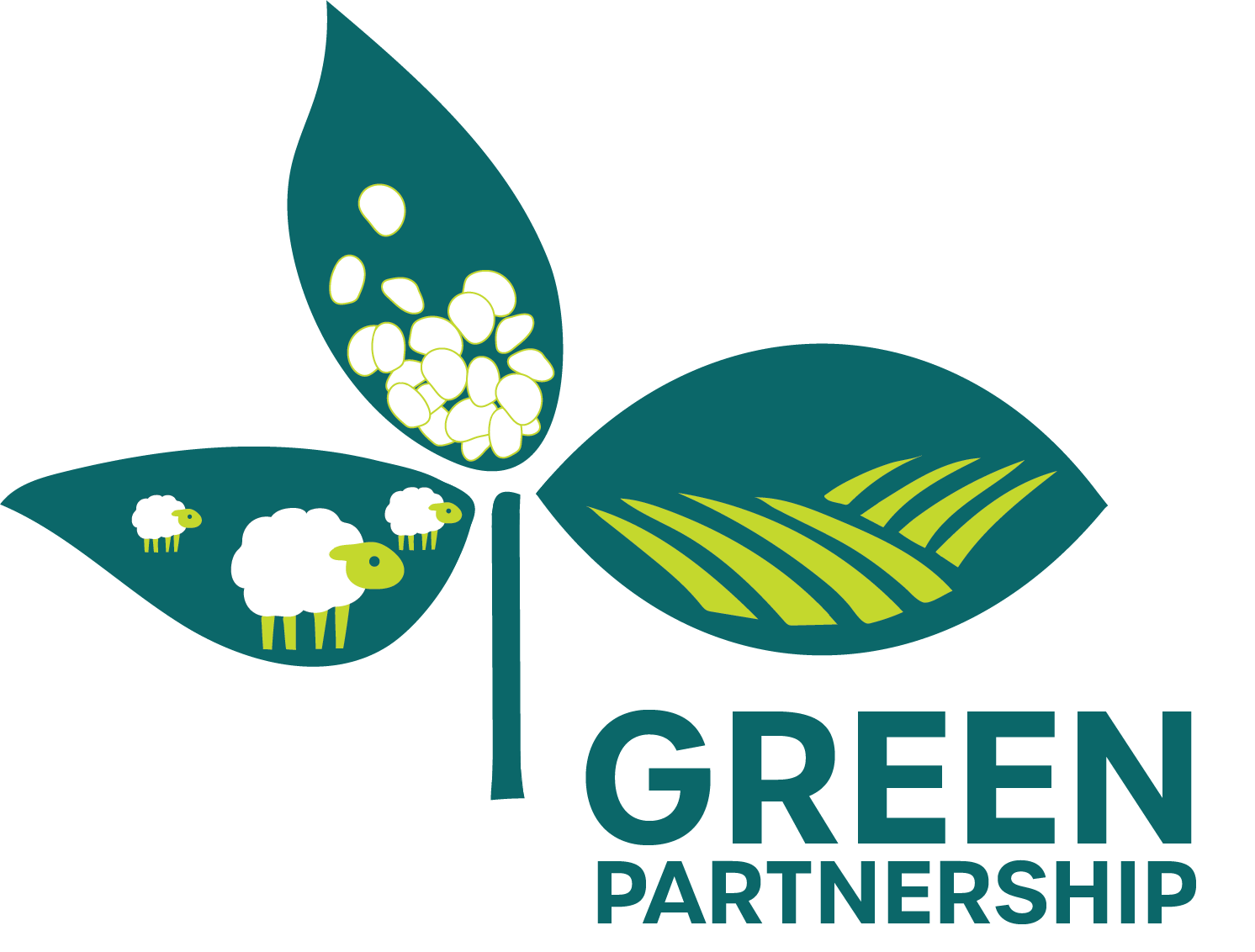HAY PRODUCTION
Green Partnership specialises in the production of high quality, weed free hay to meet your specifications. Bale size varies from small bales to large 8 x 3 x 4 bales. We produce hay from lucerne, as well as pasture hay and cereal hay. All types of hay are produced to optimise quality and we have various grades available for sale.
We bale with a hay steamer. The Staheli West Dew Point streamer has revolutionised our hay making enterprise. It is the first of its kind in the world. We purchased our streamer in 2017, to reinvigorate our hay business and stay at the front of modern technological improvements in the agriculture sector.
Baling with steam results in higher leaf retention and increases the baling window, allowing us to choose the optional time for baling that suits the hay and our farming practises.
The quality and consistently of our hay bales have been transformed by using the steamer, all bales are of the same highest quality and standard, which makes it easier for our customers to have trust in purchasing a consistent product for their operations whether that be for chaffing or inclusion in a feed mix.
Much of our prime hay finds its way into the chaff market that feeds the nation’s horses.
Whether you are fuelling the fastest racehorse in the nation or the most loved family pony, our lucerne hay will cater to your needs. We understand the needs of the equine industry and the high standards needed to ensure that horses perform well, and high performance standards start with what animals are being fed.
Similarly, we produce hay for the feedlot, dairy, general agricultural industries and understand the feed quality attributes that are required for our customers and their needs.
Our hay is stored with great care after baling to ensure maintenance of quality standards that our clients have come to expect from our business. If you have specifications unique to your business, please contact us and we can supply you with a Commodity Declaration and a feed quality test, verifying the quality parameters are to your requirements.
The Staheli West Dew Point streamer
THE HAY MAKING PROCESS
The favourable climate that Forbes offers allows us to create hay for an extended time over the warmer months. Our hay season begins in October and runs until April. During this period, we can harvest up to seven cuts of lucerne, depending on weather conditions.
All of the steps that form the hay making process are carried out in house, by our experienced operators, ensuring that each operation is executed with pride at precisely the right time, ensuring the end product is of the highest standard possible.
There are three main steps in the hay making process:
1. Cutting
2. Raking
3. Baling
Cutting takes place to optimise the quality of the plant, which in turn translates into quality hay for your stock. We aim to cut our lucerne to optimise sugars and starch in the plant, optimising energy and protein levels, as well as digestibility available for feeding process. This is usually before the plant starts to flower. Once the plant begins flowering, the energy in the plant is transferred to the root reserve below the ground, thus resulting in a lower quality product.
Once the lucerne is in windrows, it then begins the curing process, which essentially is the drying phase. Weather plays an important part in this process and it is dependent on heat, humidity, and wind.
Raking will take place once or twice to turn the windrow therefore ensuring an even curing process.
Once the windrow is cured, the baling process then takes place. To ensure the highest quality hay, with as much leaf in the bale as possible (as this is where much energy and protein is contained) baling will take place before sunrise, depending on humidity and moisture. Our steamer allows use to add moisture if and when required.
The moisture content of hay is a critical factor that influences how the hay stores, and behaves when using it. Hay is baled at 12-15% moisture for chaff and for the general hay market. Our baler is equipped with a moisture meter that accurately and reliably tests the moisture of each bale throughout the baling process. This ensures that we are able to bale the hay to optimise quality.
Over the cooler months the lucerne is rested, fertilised, weed control is carried out, and our ewes and lambs graze until the hay season commences.








QUALITY
We care about your business and the valuable livestock that our hay feeds.
We happily provide all clients with a Fodder Vendor Declaration. Green Partnership supports the routine use of such documents, as it ensures our customers can relax knowing that our hay contains no nasties and is safe for all classes of livestock. This means no chemical residues of any sort. Depending on the season, we have various grades available to meet the needs of all markets. Please contact us for availability and price of your preferred grade.
STORAGE
Storage of hay is vitally important in ensuring that it maintains its colour and quality from baling until the time of feeding or processing into chaff. All hay produced by Green Partnership is stored out of the weather, under cover in weather proof facilities.
AWARDS
Green Partnership Pty Ltd was awarded the Feed Central - NSW Winner for 2017/2018 and 2018/2019 in the Nattional Hay Quality Awards, Best Lucerne Hay, Visual Appearance Score category.
Canowindra produce is very proud of our longstanding relationship with Green Partnership which has been a constant for the last 40 years. Every year Green Partnership provide us with quality Lucerne and Cereal Hay, for us to turn into chaff. Which then is distributed throughout Australia and Asia. Quality and integrity is utmost to our business, as it is too for Green Partnership. Green Partnership always follow through with their commitments, irrespective of changes to seasonal demand. Green partnership have a thorough knowledge of hay production. They are always at the fore front of technology and ideas for the hay industry. Green Partnership understand what the customer wants.
— Mark Brown, Director - CANOWINDRA PRODUCE




